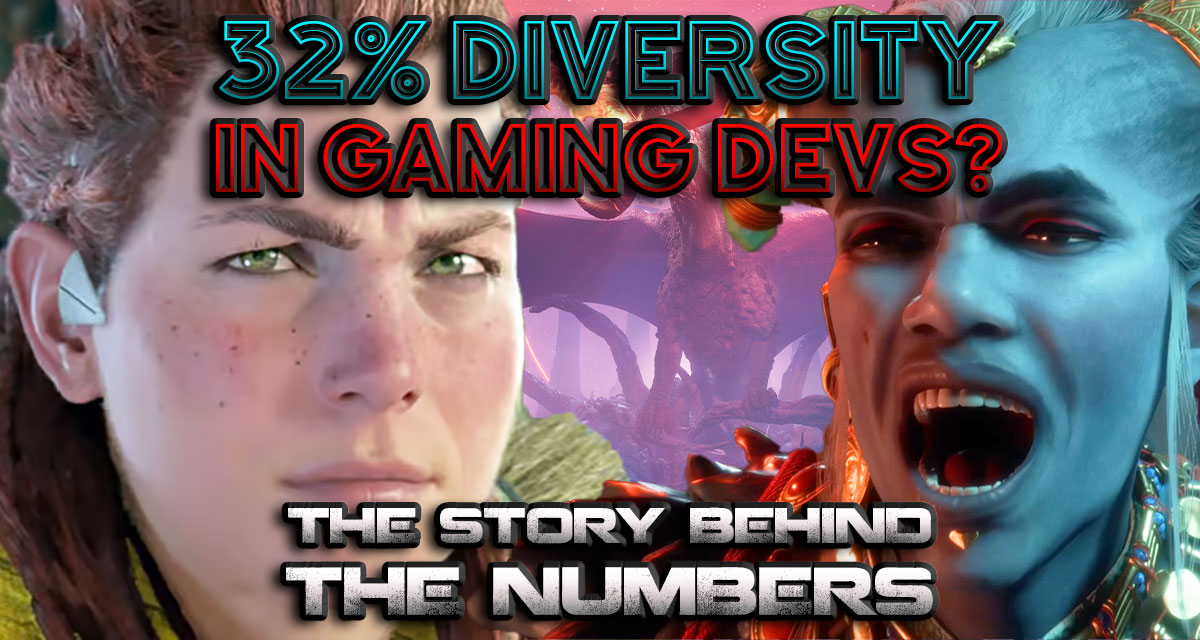
32% Diversity in Gaming Devs? The Story Behind the Numbers
DramaGaming FailsGaming News 8 175 2 Ayefkay January 24, 2025

The Latest Saga in Gaming's DEI Obsession
Welcome to the twisted world of diversity, equity, and inclusion (DEI) in gaming. On the surface, a recent article by TheGamer shouts triumphantly that, “Women and Non-Binary Devs Now Make Up 32% of All Game Developers, Up from 24% in 2022.”
At first glance, it sounds like like we’re heading towards their version of “progress”. But when you unpack this narrative, things start to smell like a steaming bowl of overripe propaganda.
Is this statistic truly the direction gaming is heading, or is it just another way to gatekeep and play identity politics?
Grouping Women with Non-Binary: A Misleading Narrative
First, let’s address the elephant in the room.
Grouping women with people who identify as non-binary individuals under one umbrella is like saying apples and oranges are the same because they’re both fruits.
Sure, women and people that identify as non-binary exist in the same universe, but the implication that they’re inherently aligned—ideologically or otherwise—is misleading.
Women in gaming, just like men, span the political and cultural spectrum. Not every female developer is a left-leaning activist, and that’s okay.
However, people who identify as non-binary individuals, by definition, lean into progressive ideologies because their identity often ties directly to left-leaning concepts of gender.
By lumping these two groups together, the narrative subtly suggests a unified “progressive front,” which is, frankly, false while also inflating the numbers since the percentage of people who identify as non-binary devs alone is actually never shared in the article…weird.
This kind of grouping isn’t just lazy; it’s manipulative.
Let’s not forget that many women developers in gaming might not even support the heavily politicized narratives often pushed in today’s games.
Yet by bundling them into a statistic alongside non-binary-identifying developers, the article conveniently paints a picture of unified progressivism that just doesn’t match up with what gamers, or even women as a whole, actually want.
Vara Dark Showcases Devs and Gamers Rejecting DEI-Practices
The Fallout of Forced Wokeness in Gaming
Now, let’s get real. Nobody’s against women in gaming—at least, nobody reasonable.
But the backlash against forced narratives, often under the DEI banner, is very real. Look no further than 2024 gaming flops like Dragon Age: The Veilguard, Concord, Suicide Squad: Kill the Justice League, and The Dustborne.
All these games had one thing in common: an overdose of political messaging and pandering that turned off their audiences.
Gamers don’t boot up their rigs to get lectured on identity politics.
They want to slay dragons, shoot aliens, and save the world—you know, for funsies.
But when a game feels more like a sermon than a story, players check out. And when those games flop, developers scratch their heads and blame “toxic, bigotted, racist, right-wing-extremist gamers” instead of reevaluating their priorities and reflecting on their mistakes.
DEI in Gaming Hires: Inclusivity or Intentional Gatekeeping?
The TheGamer article paints these statistics as a rallying cry for broader diversity in gaming. But what it really highlights to me is the gatekeeping under the guise of inclusivity.
There’s a growing trend in the gaming industry: hiring practices that prioritize identity over merit.
For instance, companies like Riot Games and Ubisoft have faced criticism for seemingly favoring “diverse” candidates—a term that often excludes straight, white males.
It’s not just whispers, either.
Multiple companies have openly stated preferences for hiring LGBTQ+ individuals or people of color.
One notable recent case involved a tirade of posts on X and Bluesky by Avowed’s Art Director, Matt Hansen, where he went on to say things like “We got too many crusty white dudes in this field, please let me help you replace me one day—I want to go back to living in the woods.” in a now-deleted post among many, many others.
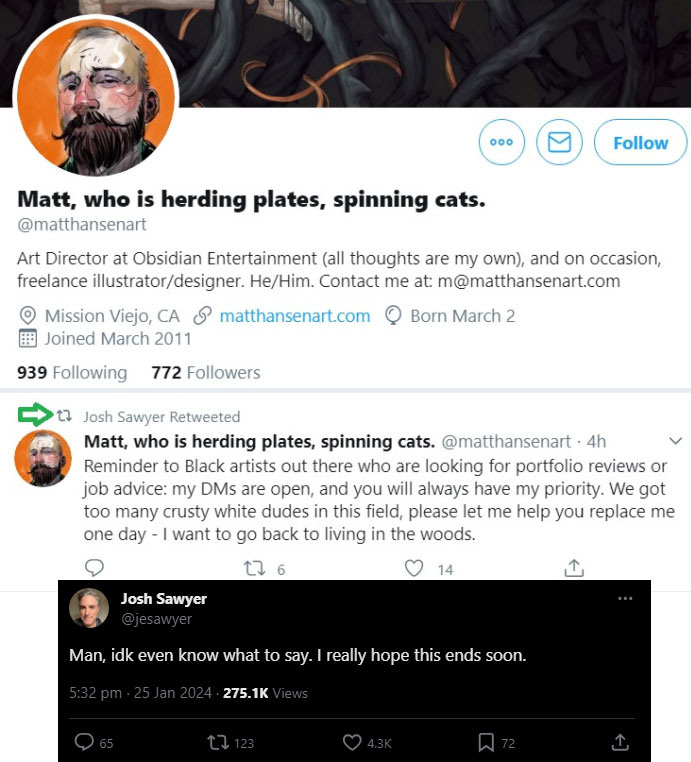
Image Source: SmashJT.com | Originally posted on X (now deleted)
I’m not sure about the future-failed game, Avowed, but when studios focus more on checking diversity boxes than hiring the best talent, the games themselves suffer.
And while diversity for the sake of diversity might get you some social justice brownie points, it doesn’t translate to better storytelling, engaging gameplay, or polished mechanics.
You know, the things gamers actually care about.
"You Can't Be Racist Against White People"
Despite what some formerly-employed gaming journalists might have you believe, you can absolutely be racist to white people.
Need receipts?
Here are a few notable instances of gaming companies prioritizing identity politics over skills:
- Riot Games: Their internal hiring policies came under fire for allegedly favoring “underrepresented” groups. While Riot later rephrased their policies later on to (I can only assume) avoid legal trouble, the messages from Riot moving forward hasn’t given any better of an impression.
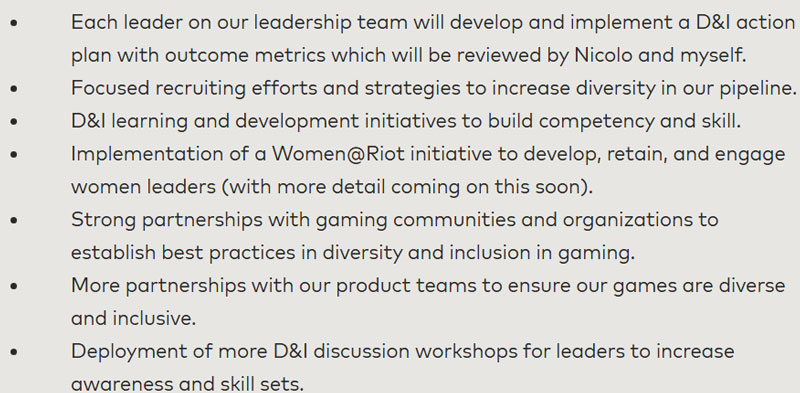
Image Source: Riot Games Diversity and Inclusion Progress Report
- Ubisoft: During their diversity initiatives in 2021, internal memos surfaced highlighting what seemed to be a push to make their staff “more representative of the player base,” which led to claims of reverse discrimination. Additionally, providing a mentorship program strictly for “women and non-binary individuals”, questions have arisen about the legalities of these discriminatory practices.

Image Source: Develop at Ubisoft
- The Games Industry Community Managers: A lot of gamers don’t understand how much influence CM’s have over a game while at the same time…they seem to hate gamers? These aren’t the people you want running your social media, Steam page, etc. – but they’ve been installed there regardless and act as the mouthpiece between the developers and the gamers.
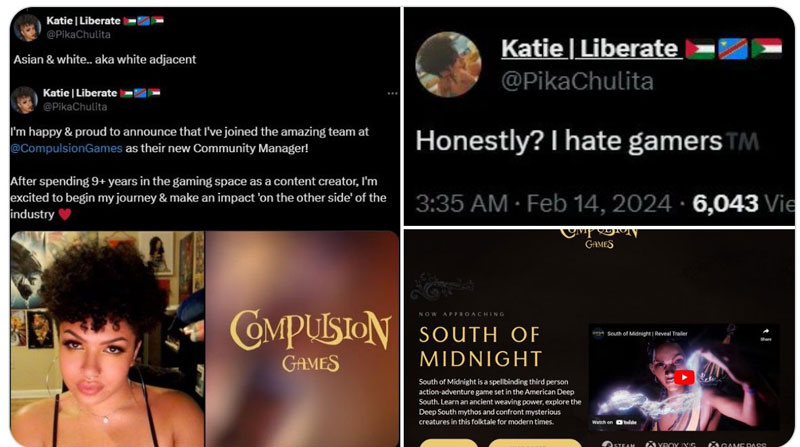
Image Source: Posted by Grummz | Original posts by @PikaChulita on X
When studios adopt these practices, they’re not just excluding a group; they’re fostering and perpetuating resentment.
And no one wins when the industry feels divided along arbitrary identity lines.
If I don't report fairly, or omit facts, I would just be Kotaku. This REALLY sucks.
— Grummz (@Grummz) April 5, 2024
So we (everyone on my feed) are now looking into Helldivers Community Manager and I'm getting sent stuff.
I will present without comment. pic.twitter.com/upOOfOvou5
Image Source: Posted by Grummz | Original posts by @baskinator on X
The Problem with "Inclusivity by Exclusivity"
At its core, inclusivity by exclusivity is just another form of discrimination.
The gaming industry’s current obsession with DEI has created a paradox: by trying to include everyone (that share their beliefs), they’re actively excluding others. Straight white males, no matter how talented, are often painted as the villains of the story.
Merit-based hiring diminishes discussions around race, gender, and identity.
Why?
Because when you hire the best people for the job, their work speaks for itself.
Great storytelling and innovative gameplay aren’t tied to skin color or gender identity. They’re tied to talent, passion, and hard work—qualities that transcend trivial ideas like just how much melanin is in an individual’s skin.
What Gamers Actually Want in Games
At the end of the day, gamers don’t care who made their favorite games.
Nobody paused The Witcher 3 to ask, “Was this dev team diverse enough?” at the time.
Players care about immersive worlds, compelling characters, and fun gameplay. They care about experiences that let them escape, not headache-inducing agendas that drag them back to reality.
When studios prioritize merit over identity, everyone wins.
Developers get to work in an environment where they’re valued for their skills, not their identity. Gamers get better games. And the industry moves forward, leaving identity politics at the door where they belong.
Always Question Gaming Media
True inclusivity doesn’t come from excluding others. It comes from hiring the best people for the job—regardless of their identity.
The best games are made when talent takes the lead, not quotas. And until the gaming industry figures that out, we’ll be stuck with more flops, more division, and less fun.
Because, let’s face it, gaming should be fun.
What is so hard about that to understand?
Want More?
Check These Out Next!
About Report AFK
A place for gamers, by gamers, untarnished by legacy gaming media and their herds of sheeple.
Site Links
Copyright 2025 ReportAFK.com



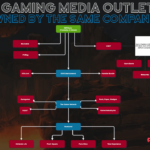

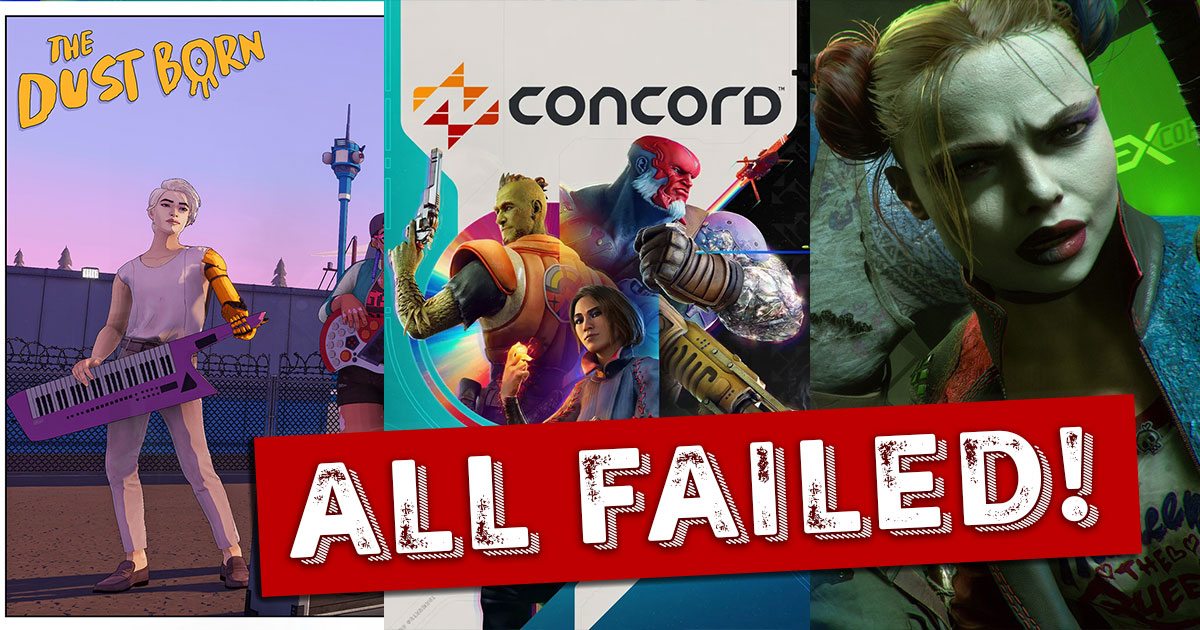
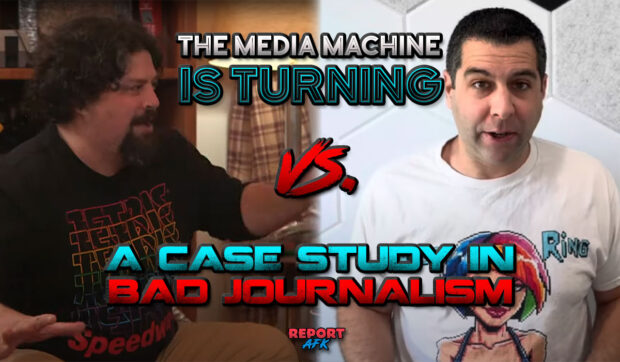
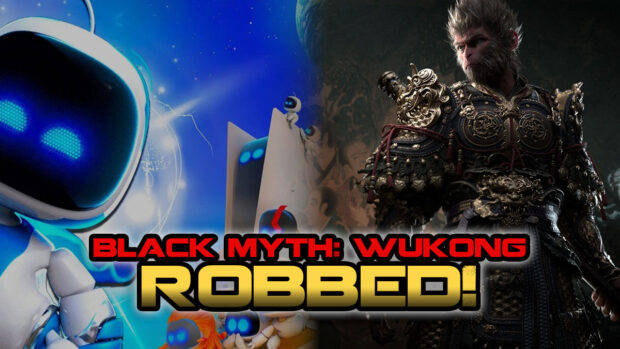
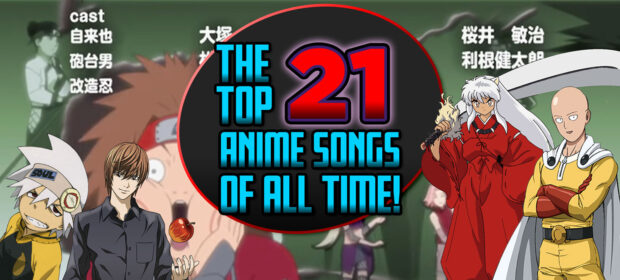




Trump the XVI
January 24, 2025
Non-buy-nary
Ayefkay
January 26, 2025
Hey Trump (lol), and I don’t have any problem with anyone that identifies as being “non-binary” (although I do agree with them ideologically), but I just felt like the original article talking about this stuff was just very disingenuous. Although, I don’t think people expect much else from TheGamer these days. Anyways, thanks for dropping by and I hope you liked the article!